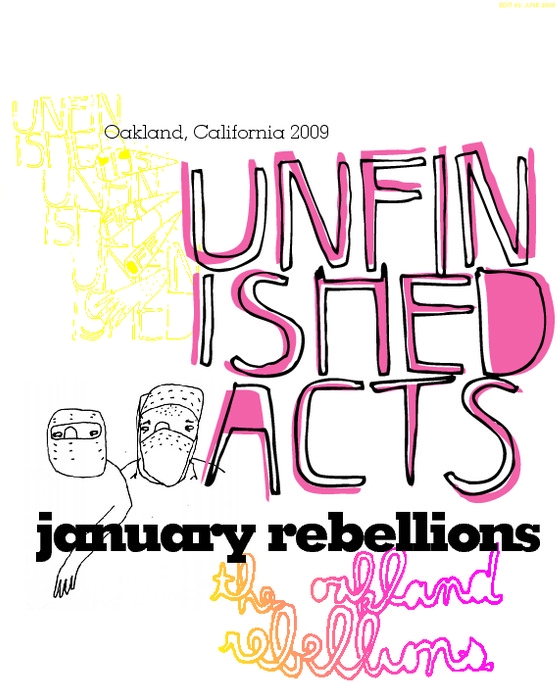We’re posting the first serious engagement and response to our pamphlet  Justice for Oscar Grant: A Lost Opportunity? by comrades in the Oakland chapter of Bring the Ruckus. The response further develops the analysis of the pamphlet and poses further questions and challenges. We appreciate the response and look forward to discussing and debating the important questions of revolutionary praxis found within.
Justice for Oscar Grant: A Lost Opportunity? by comrades in the Oakland chapter of Bring the Ruckus. The response further develops the analysis of the pamphlet and poses further questions and challenges. We appreciate the response and look forward to discussing and debating the important questions of revolutionary praxis found within.
——————————————–
Bring the Struggle, Advance the Ruckus
Bring the Ruckus, Oakland (BR-OAK) welcomes the release of the new pamphlet by Advance the Struggle (AS), entitled “Justice for Oscar Grant: A Lost Opportunity?” In the spirit of comradely and productive critique, we offer the following comments, which we hope will both build upon ideas developed in the pamphlet, and also provoke further reflection on where to go from here.
“Justice for Oscar Grant: A Lost Opportunity?” seeks to critically assess the “organizational tools” available to those who took to the streets in January of 2009. According to AS, these tools primarily consisted of:
- The Coalition Against Police Executions (CAPE) a hastily-assembled grouping composed largely of nonprofit sector leftists, and
- “a self-labeled revolutionary communist organization” (i.e. the Avakianite Revolutionary Communist Party, or RCP) (p. 2).
The major contribution of this pamphlet, we believe, lies in this double-sided critique of two elements, two “organizational tools” which on the surface share very little, but whose subtle similarities could be further developed. While CAPE spent much of its time attempting to restrain the energies of the rebellion and channel these down reformist paths, young RCP cadres were consistently in the streets inciting further mobilization. AS is correct, nevertheless, to highlight the underlying compatibility that both sectors shared.
Continue reading . . .

 felt it’d be appropriate to post some original writing on the role of the student movement. Is it a middle class movement as some have argued? Or is it part of the struggle against capitalism?
felt it’d be appropriate to post some original writing on the role of the student movement. Is it a middle class movement as some have argued? Or is it part of the struggle against capitalism?


 some “insurrectionist” anarchists. It’s titled Unfinished Acts: January Rebellions and is laid out as a play (hence the title, unfinished acts). We’ll leave the comments open for criticism, appreciation, etc . . .
some “insurrectionist” anarchists. It’s titled Unfinished Acts: January Rebellions and is laid out as a play (hence the title, unfinished acts). We’ll leave the comments open for criticism, appreciation, etc . . .
